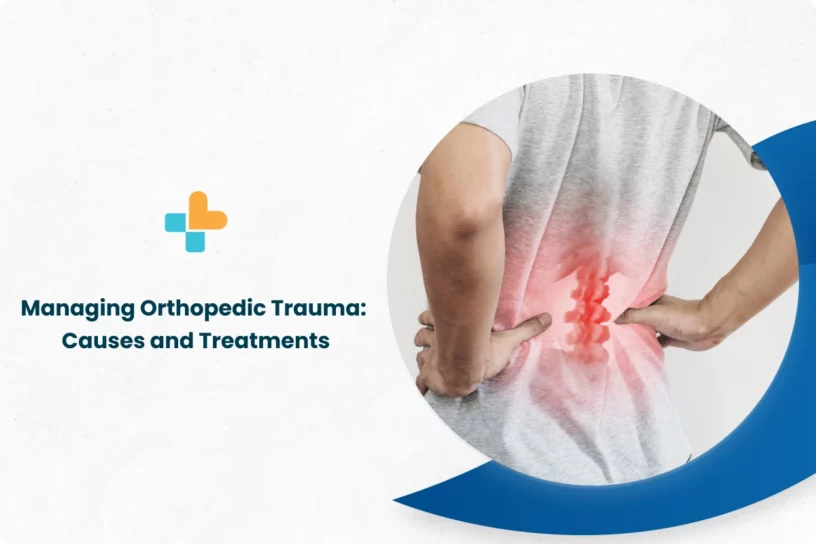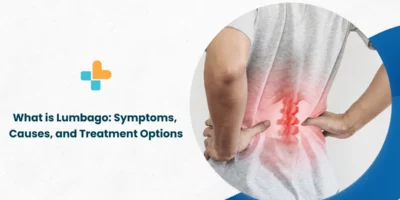Orthopedic trauma is one of most common forms of injury or trauma experienced by people in their day-to-day lives. A scientific report suggests that the rate of orthopedic trauma annually could be around 23%, which is a big number. There can be various causes behind it and the treatment varies accordingly. Read on till the end to get the necessary details.
What is Orthopedic Trauma
Any serious injury to your musculoskeletal system, which includes the bones, muscles, tendons, joints, and ligaments, is considered an orthopedic trauma. These traumatic injuries frequently arise from an unexpected mishap, such a fall, which needs quick medical care. Even though none of these wounds are usually life-threatening, they do change people’s lives.
Common Causes of Orthopedic Trauma
There can be a variety of causes behind orthopedic trauma. Some of them are mentioned below:
- Sports injuries
- Car crashes
- Accidents at workplace
- Slipping down, or falling from somewhere
- Suffering from a direct blow
The point to be noted here is that a weak body, especially in terms of bone health, is more prone to experiencing orthopedic trauma.
Factors that Increase the Risk of Orthopedic Injury
Some of the factors which enhance the risk of orthopedic injuries are:
- Fragile bones due to osteoporosis
- Old age
- Not wearing protective gear while playing sports
- Not using helmets or seatbelt while riding a bike or driving a car, respectively.
- Poor diet; which leads to a weak body.
- Wrong techniques employed during exercises or playing a sport.
Some common orthopedic trauma injuries
Below are listed some of the frequently occurring types of orthopedic trauma:
Fractures: A fractured bone has been broken. The seriousness of fractures can vary from a hairline or greenstick fracture, which is a crack, to a total break and detachment of a bone which may emerge through the skin.
- Sprains: Ankle sprains are frequently sustained while playing sports, participating in high-impact activities, or performing tasks that require many fast twists, spins, or moves.
- Bone infection: Osteomyelitis can impact any bone and frequently develops after trauma. Osteomyelitis can spread to the surrounding tissues, destroy the bone, and delay any fractures from mending if it is not treated properly.
When to See an Orthopedic Trauma Specialist
It is advised that you visit an orthopedic trauma doctor if you have suffered an injury from engaging in sports, from falling or being involved in a car accident, from a natural catastrophe, or if you have been the victim of crime or domestic violence.
After a traumatic event or occurrence, the following symptoms may indicate that you require the services of an orthopedic trauma specialist:
- Unable to stand or walk
- Reduced mobility
- Malformation of joints
- Unmanageable pain.
- Bleeding.
- Swelling and constant discomfort.
What Does an Orthopedic Trauma Surgeon Do?
An orthopedic trauma surgeon is a medical professional who specialises in the surgical care of patients who have suffered slight to substantial physical trauma as a result of sports or vehicle accidents, natural catastrophes, criminal activity, or abuse. An orthopedic trauma specialist has the training and expertise to assess the patient’s demands immediately and can carry out the required operations fast and safely. The orthopedic trauma surgeon will know whichever injury to address first for the best outcomes if a patient with serious physical trauma has several injuries.
Such experienced orthopedic trauma surgeons deal with surgeries as follows:
- Bone grafting
- Reconstructive surgeries
- Transplant of joints or bones.
- Treatment of fractures.
Few treatment options are non-surgical, for issues such as fractures or dislocations. Using casts or splints, they can be resolved easily. Depending on the intensity of trauma, generally the healing period ranges from a few weeks to a couple of months.
Preventing Traumatic Orthopedic Injuries
The uncertain nature of accidents makes them difficult to predict but they’re not entirely unavoidable. The preventive measures mentioned below can help a lot to avoid orthopedic trauma:
- To avoid orthopedic trauma injuries, warm up and stretch before exercising out or engaging in sports.
- When riding, skating, rollerblading, etc., invariably put on a helmet.
- Wearing a seatbelt is a must while driving.
- Don’t forget your protective gear while playing competitive contact sports, such as rugby.
- Wear comfortable and non-slippery shoes to avoid tripping over or spraining your ankle.
Conclusion
Orthopedic injuries are unanticipated and can be a life-altering occurrence. However, one shouldn’t worry a lot, since with proper treatment the trauma is often manageable. If you’re looking for reliable and expert orthopedic trauma specialists,
Ayu Health has the best dermatology facilities with proper patient care. Call 636-610-0800 to book an appointment or to know more.
Our Hospital Locations
Orthopaedics Surgery Hospitals in Chandigarh | Orthopaedics Surgery Hospitals in Bangalore | Orthopaedics Surgery Hospitals in Jaipur | Orthopaedics Surgery Hospitals in NCR | Orthopaedics Surgery Hospitals in Hyderabad
Our Doctors
Orthopaedics Surgery Doctors in Chandigarh | Orthopaedics Surgery Doctors in Bangalore | Orthopaedics Surgery Doctors in Jaipur | Orthopaedics Surgery Doctors in NCR | Orthopaedics Surgery Doctors in Hyderabad
About the Author

Dr. S. Goel
Dr. S. Goel is a renowned Internal Medicine Specialist currently practicing at Ayu Health, Bangalore. He is a Specialist in Internal Medicine, Diabetes HTN, Paediatric Care, and Family Medicine.




